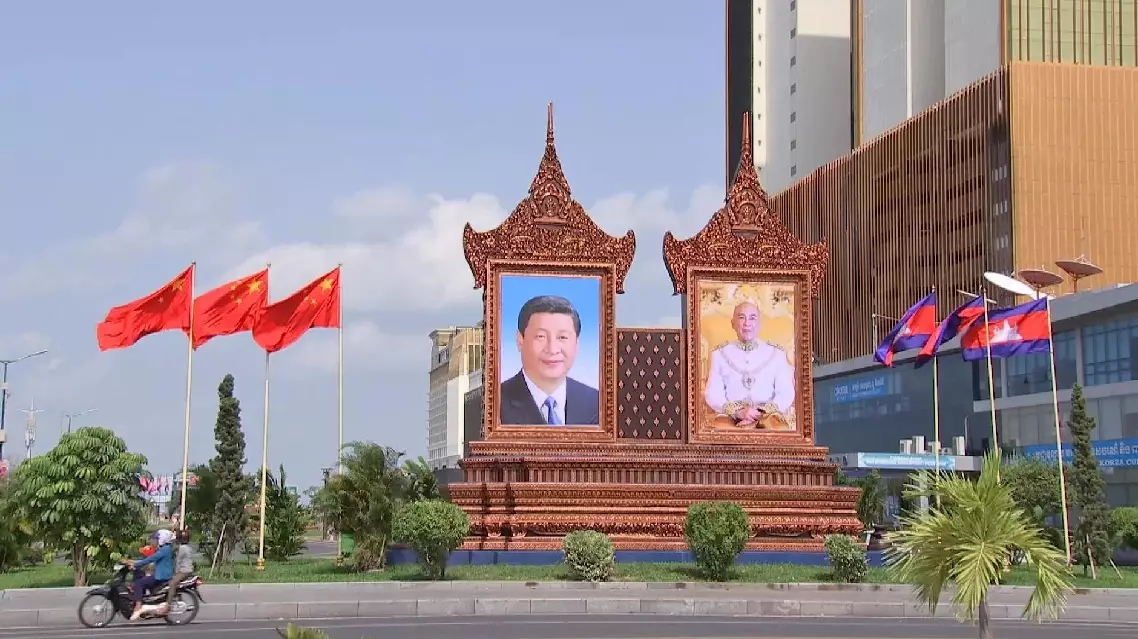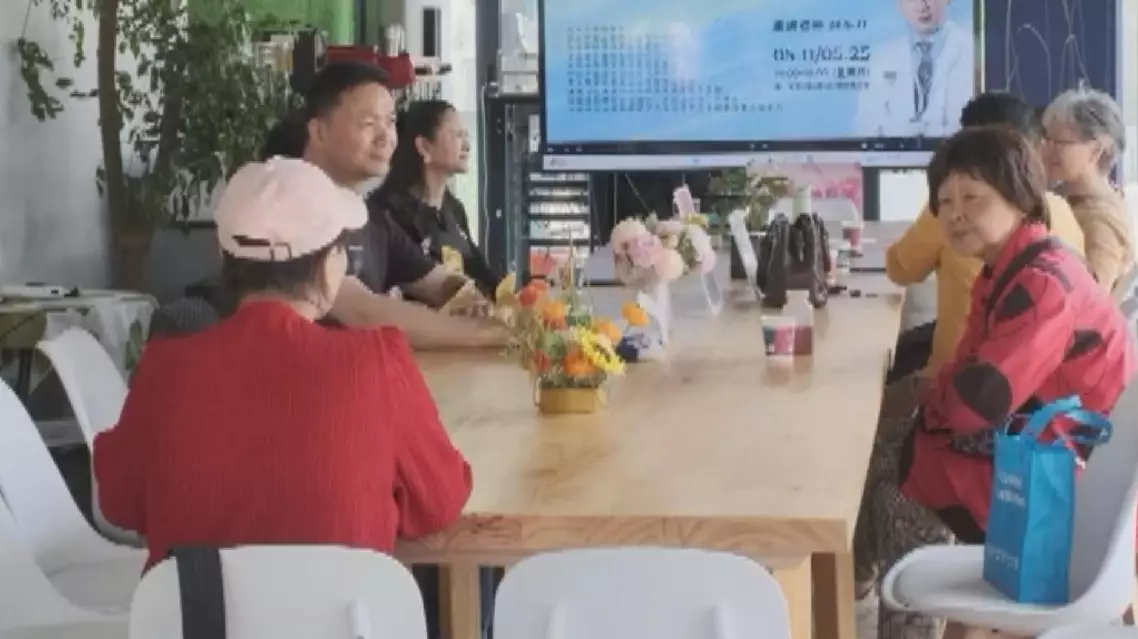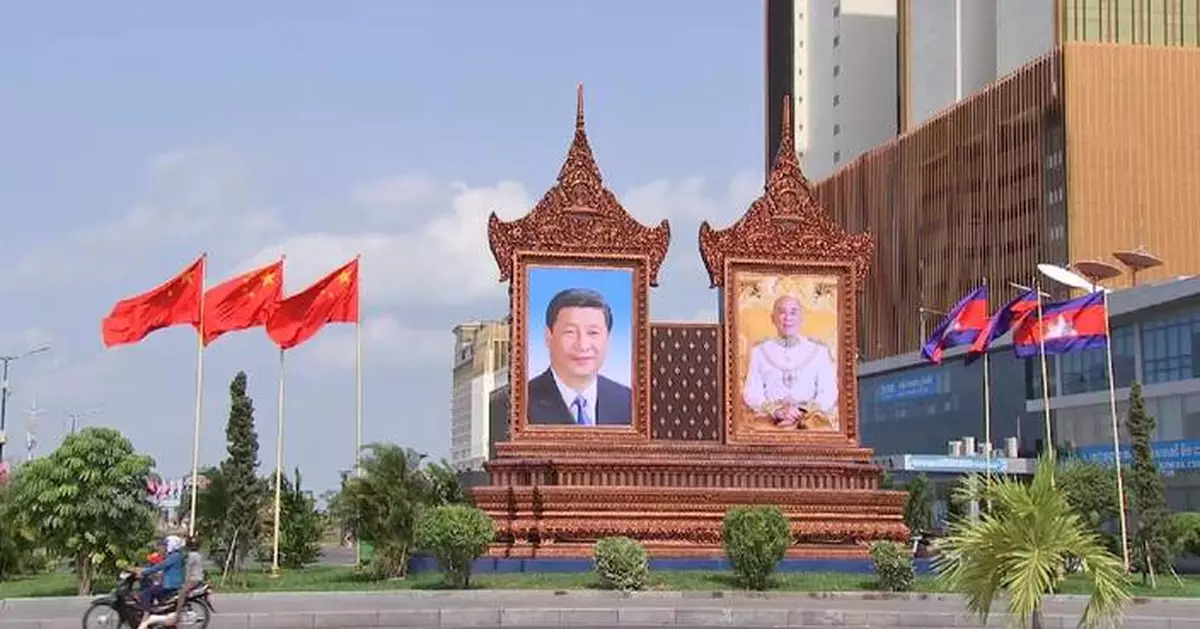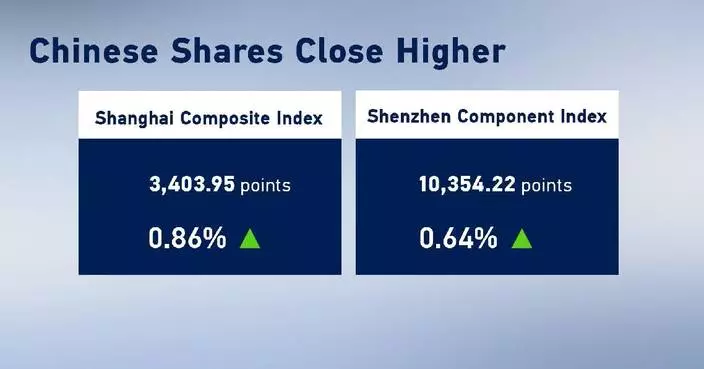Chinese President Xi Jinping will make a state visit to Cambodia on Thursday and Friday this week at the invitation of King Norodom Sihamoni of Cambodia.
China and Cambodia have traditionally been close neighbors and iron-clad friends. The two countries officially established diplomatic relations on July 19, 1958.
In 2010, China and Cambodia established a comprehensive strategic partnership.
In 2023, the two countries pledged to further build a Cambodia-China community with a shared future in the new era, and have since achieved fruitful results in their diamond cooperation framework with six priority areas including political cooperation, production capacity, agriculture, energy, security and people-to- people exchanges.
Xi's last state visit to Cambodia was in October 2016.
Located in the southern part of the Indochina Peninsula, Cambodia is bordered by Vietnam, Thailand, and Laos. It has a population of approximately 16 million, with the Khmer ethnic group making up 80 percent.
Cambodia has a long and glorious history and culture and was an important stop on the ancient Maritime Silk Road.
Cambodia's Angkor historical site, which was built between 802 and 1201 AD, is renowned for its grand architecture and exquisite bas-reliefs and murals, and was designated a UNESCO World Heritage Site in 1992.
Cambodia is the last leg of Xi's current five-day, three-nation Southeast Asia tour, which also includes state visits to Vietnam and Malaysia.

Xi to make state visit to Cambodia
As China's elderly population grows, shopping malls in Shanghai have actively adapted part of their services to cater to the needs and preferences of elderly consumers, tapping into silver-haired consumer market.
This trend reflects the city's efforts to enhance elderly care services amid the population aging. By the end of 2023, people aged 60 and older reached 5.68 million in Shanghai, representing a whopping 37.4 percent of the city's total population.
A shopping mall on the downtown Nanjing East Road pedestrian street has opened a dedicated club for senior citizens, offering a diverse range of activities from the operation of health workshops to traditional handicraft classes.
"I gain a lot every time I come here. I can participate in various club activities and also exchange knowledge and everyday life hacks with others," said Fu Meilin, an elderly resident.
The mall houses nearly 60 time-honored brands, along with dining and entertainment options suited to senior citizens.
Another business district in Shanghai's Putuo District has adopted a different approach, focusing on attracting retirees during weekdays while catering to younger shoppers on weekends.
Restaurants offer affordable off-peak meal deals priced under 100 yuan (about 13.88 U.S. dollars), attracting a large number of senior customers.
To ensure a convenient and enjoyable shopping experience for the elderly, many shopping malls have conducted age-friendly renovations, including providing comfortable seating areas, accessible restrooms, and consumer guidance services for the elderly shoppers.
Driven by the population aging, China's "silver economy" has shown vast growth potential, with the market currently estimated at around seven trillion yuan and projected to reach a 30 trillion yuan by 2035.

Shopping malls in Shanghai adapt to cater to growing 'silver economy'






















































